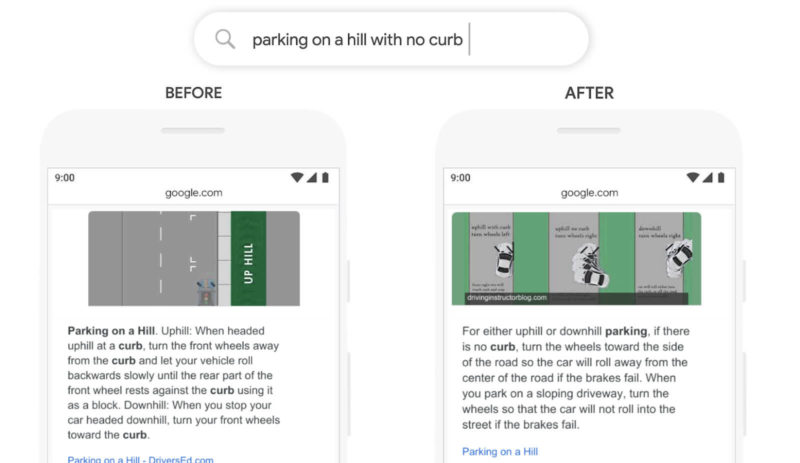On October 25th, Google implemented BERT (Bidirectional Encoder Representation from Transformers) in the United States. Google BERT is the first algorithm to use deeply bidirectional, unsupervised language to provide context and nuance to searches. Google was able to create BERT and train its natural language processing (NLP) by utilizing the research they have done on transformers, or how words relate to other words.
Google released the following statement regarding BERT:
“These improvements are oriented around improving language understanding, particularly for more natural language/conversational queries, as BERT is able to help Search better understand the nuance and context of words in Searches and better match those queries with helpful results. Particularly for longer, more conversational queries, or searches where prepositions like ‘for’ and ‘to’ matter a lot to the meaning, Search will be able to understand the context of the words in your query. You can search in a way that feels natural for you.”
What Does BERT Do?
 Bert focuses on the the entire phrase of a search instead of just keywords. While simple keyword searches are more likely to use other algorithms already in place, such as RankBrain, more conversational searches will most likely go through BERT. It may be used alone or in tandem with the other algorithms implemented by Google to return the most relevant results. Google estimated that about 1 in 10 searches will be affected by BERT in the United States.
Bert focuses on the the entire phrase of a search instead of just keywords. While simple keyword searches are more likely to use other algorithms already in place, such as RankBrain, more conversational searches will most likely go through BERT. It may be used alone or in tandem with the other algorithms implemented by Google to return the most relevant results. Google estimated that about 1 in 10 searches will be affected by BERT in the United States.

Google compared the featured snippets for the query “parking on a hill with no curb” from before and after the BERT update. Google VP Pandu Nayak explained: “In the past, a query like this would confuse our systems — we placed too much importance on the word ‘curb’ and ignored the word ‘no’, not understanding how critical that word was to appropriately respond to this query. So we’d return results for parking on a hill with a curb.”
What Does BERT Affect?
Google BERT doesn’t analyze webpages, but instead reads queries in a more human-like way. It was developed to better understand longer, more conversational searches and what they are trying to find. Although Google has stated it’s taken great care to make sure the algorithm doesn’t cause bias in results, digital marketers always pay close attention to when there’s a change in the algorithm. Google spokespeople and SEO professionals have stated there is no way to optimize for the update since it is a language processing system, but It’s been speculated that businesses without a thorough content strategy will be the most affected by the update.
What You Can Do:
I n-depth content, FAQs, “how-to” guides, and Q&A sessions are all fantastic ways to supplement current webpages and create more quality content. To see how BERT may affect site traffic, businesses should monitor their search engine traffic over the next few weeks. If there are any significant changes, then a deep-dive into the landing pages, search queries, and content would be advisable. That way, any root issues could be discovered and resolved. The key takeaway for the Google BERT update is that providing quality content for people to discover is still the best way to boost search results
n-depth content, FAQs, “how-to” guides, and Q&A sessions are all fantastic ways to supplement current webpages and create more quality content. To see how BERT may affect site traffic, businesses should monitor their search engine traffic over the next few weeks. If there are any significant changes, then a deep-dive into the landing pages, search queries, and content would be advisable. That way, any root issues could be discovered and resolved. The key takeaway for the Google BERT update is that providing quality content for people to discover is still the best way to boost search results



